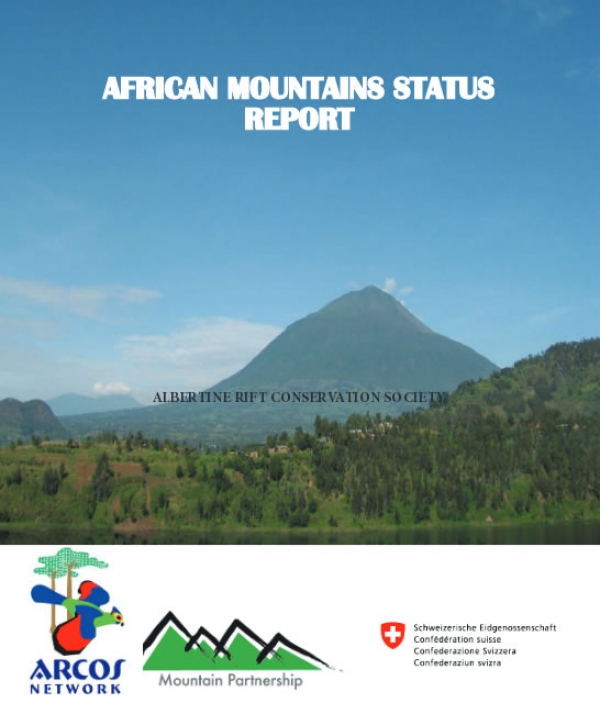Two landmark publications released to advance the Sustainable Mountain Development agenda on the African continent
Wednesday, 11 March, 2015 - 09:23

ARCOS, UNEP and partners release two landmark publications to support African Sustainable Mountain Development agenda
On 4th March 2015, ARCOS, UNEP and Partners released two landmark publications to guide Sustainable Mountain Development agenda in Africa during the 15th Regular session of the African Ministerial Conference on Environment (AMCEN) taking place in Cairo, Egypt.
The “African Mountains Atlas” and the “African Mountains Status Report”; the two publications present the status of African mountains and their role as pillars of sustainable development on the continent. The two documents are believed to support planners and decision makers in Africa as they provide a good overview of mountain issues and a host of proposed solutions that can be adopted to address Sustainable Mountain Development issues in Africa.
Featuring over 64 maps and 73 satellite images as well as some 50 graphics and hundreds of compelling photos, the African Mountains Atlas produced by UNEP in collaboration with partners including Albertine Rift Conservation Society (ARCOS), presents clear and visual messages about huge development challenges facing Africa’s Mountain ecosystems. It uses hundreds of ‘before and after’ images, detailed new maps and other satellite data from 53 countries to show the problems facing Africa’s mountain areas, such as landslides in Mount Elgon and Rwenzori, volcanic eruptions, and receding glaciers. It also presents challenges and opportunities for Africa as the continent strives to enhance the livelihoods of mountain communities and the services derived from mountain ecosystems.
The African Mountains Status Report whose production was coordinated by ARCOS, features five chapters, each dealing with a different and unique theme. Chapter one presents a general overview of African mountains, their coverage, regional distribution and a general overview of the origin and description of Africa’s major mountains. Chapter two provides a description of some of the goods and services provided by African mountains including fresh water, energy, and support to agriculture, biodiversity, non-timber forest products, ecological services and tourism. Chapter three focuses on direct and indirect anthropogenic drivers of changes in African mountains while chapter four provides insights on low cost strategies to help meeting the challenges in African mountain areas. The report also highlights policy issues and propose different approaches to overcome many challenges facing sustainable mountain development in African mountains.
Dr Sam Kanyamibwa, Executive Director of ARCOS, stressed the importance of the two publications. He said “There is a big gap to cover regarding the availability of mountain-related information. These two publications constitute a landmark in our bid to provide support to informed decision-making and planning on issues related to sustainable mountain development in Africa”.
Key partners who supported the production of these reports include the African Union, the Swiss Agency for Development and Cooperation, the Government of Norway, Austrian Development Cooperation, the United States Geological Survey and the University of Bern.
Please, download
- African Mountains Atlas here
- African Mountains Status Report here (Login as guest)
For more information, please contact:
-
Faustin Gashakamba
Director, Development, Knowledge Management and Outreach, ARCOS
Phone: +250783023303.
External Links:
Work regions:
Mountain Ranges:
Location Country:
Egypt
Files:

Facebook comments